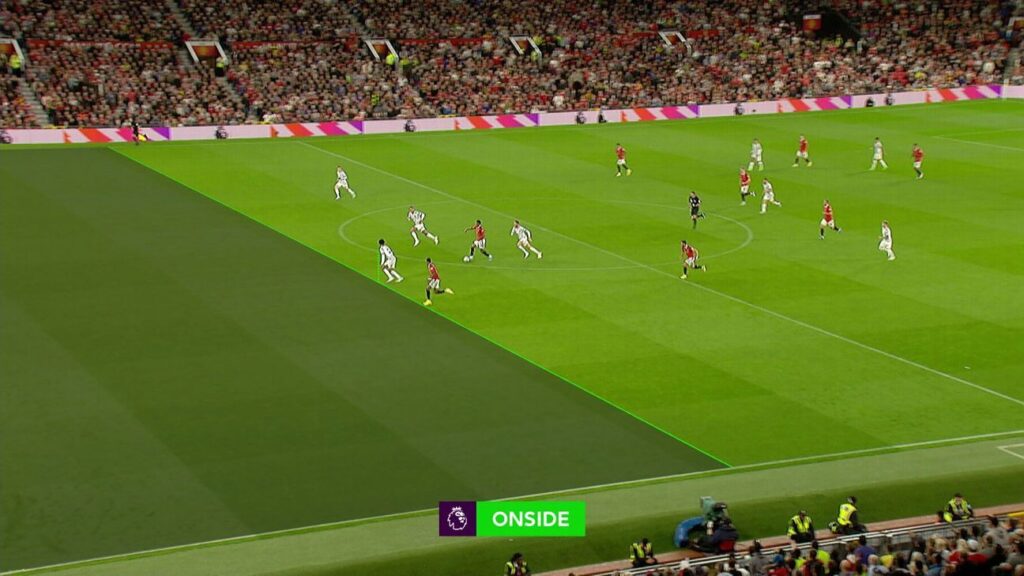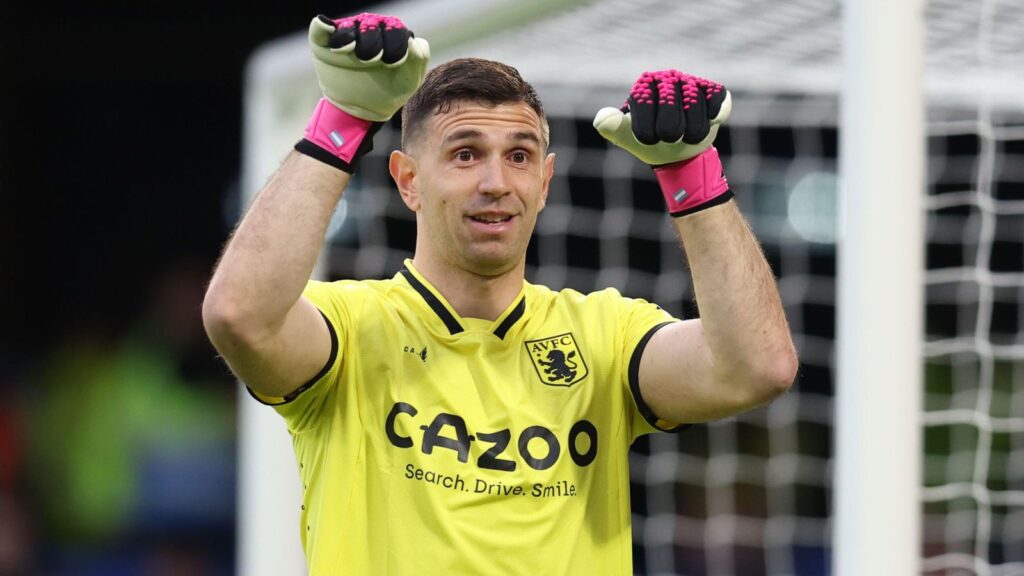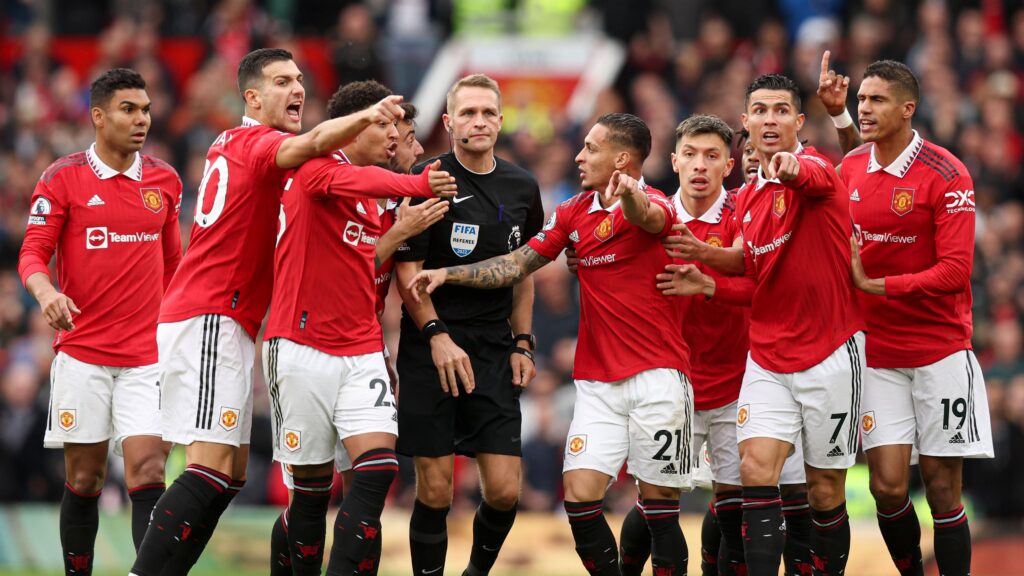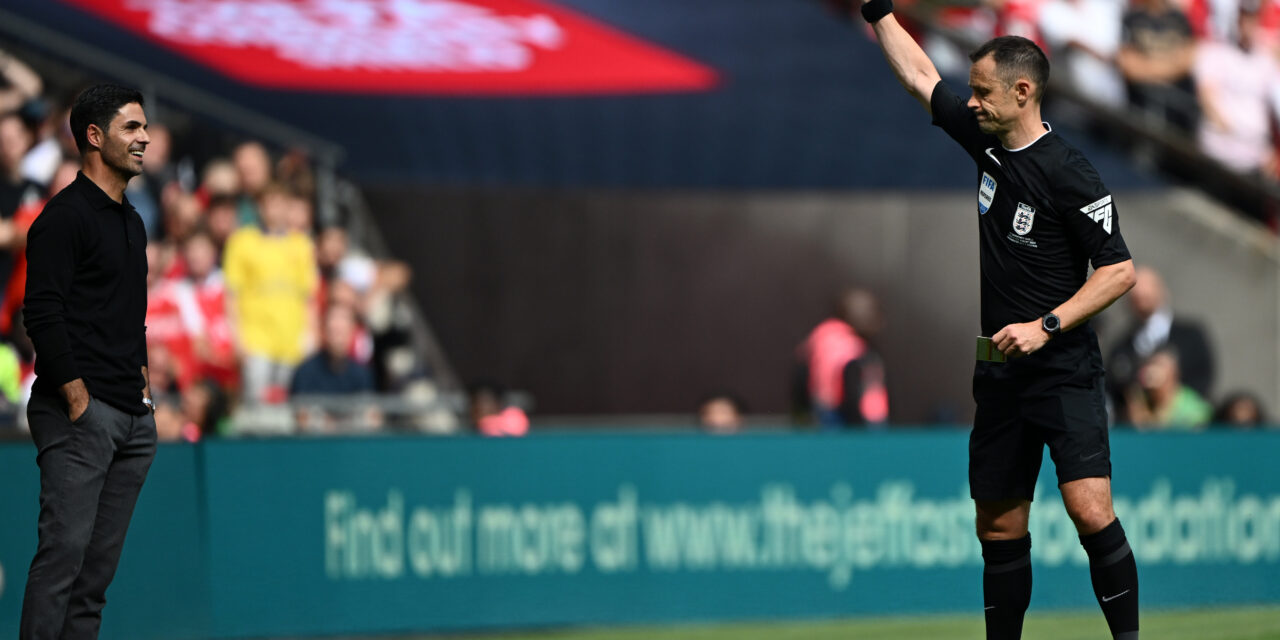The upcoming Premier League season promises not just thrilling football, but also a series of rule changes aimed at streamlining the game. The Guardian Sport has provided some vital information on what to expect. Here, we delve into the changes.
This season’s big changes to rules in the Premier League
Time-wasting crackdown
With an aim to maximise gameplay time, players simulating injuries to eat into the clock could face bookings. Referees will now tally time wasted during goal celebrations, free-kicks, and penalties. Intriguingly, this might stretch Premier League matches to durations seen in the 2022 World Cup, where the average playtime was about 55 minutes.
Offside adjustments
Though the tweak was introduced in the past season, the offside rule’s refinement is now official. The revision underscores that a player won’t automatically be deemed onside if the ball contacts an opponent beforehand. Decisions will still likely go to VAR though to determine if this has happened or not, especially when a touch is maybe not entirely clear, which will also go to contribute to how more time will be added this season to make up for stoppages in play.

Goal scoring opportunities
The new Premier LEague season brings more clarity regarding challenges on potential goal scorers. Players intentionally fouling an opponent with a clear goal-scoring chance will face a red. However, genuine attempts to play the ball leading to a foul will result in a yellow. Other foul plays like holding or pushing will result in a straight red.
Physical play and free kicks
A more lenient approach towards player contact hopes to lessen game stoppages, though “careless” challenges remain fouls. Challenges deemed “reckless” or those endangering opponents’ safety will respectively earn a yellow or red.
Goalkeeper antics and timekeeping
Inspired by the controversial ‘Emiliano Martinez’ incident during the World Cup, goalkeepers will now be penalised for deliberately delaying penalty kicks or for touching the goal’s framework to stall the game. Moreover, goalies can expect warnings for early time-wasting, not just in a game’s closing minutes.
Referees will be more vigilant about game stoppages, ensuring that the clock accurately reflects play duration. This shift aims to mirror the Qatar World Cup’s timekeeping rigour.

Managerial conduct
The forthcoming season will be stringent on the behaviours of managers and their teams off the field. Excessive antics, confrontations, or moving out of designated zones could lead to strict sanctions, including red cards that banish the offender from the ground’s visible areas.
Addressing player referee surroundings
The age-old issue of players mobbing referees will face severe checks. Any player sprinting a considerable distance to dispute a referee’s call or multiple players crowding the official can expect automatic bookings. This move, endorsed by former referee Dermot Gallagher, hopes to ensure discipline, even if it leads to a few red cards early in the season.
To conclude, the Premier League’s latest rulebook looks to foster fairness, reduce disruptions, and uphold the sport’s integrity. As fans and footballers alike adjust, the hope remains for a seamless transition to these new norms.

For even more coverage of the Premier League this season, check out our Football section.






Trackbacks/Pingbacks